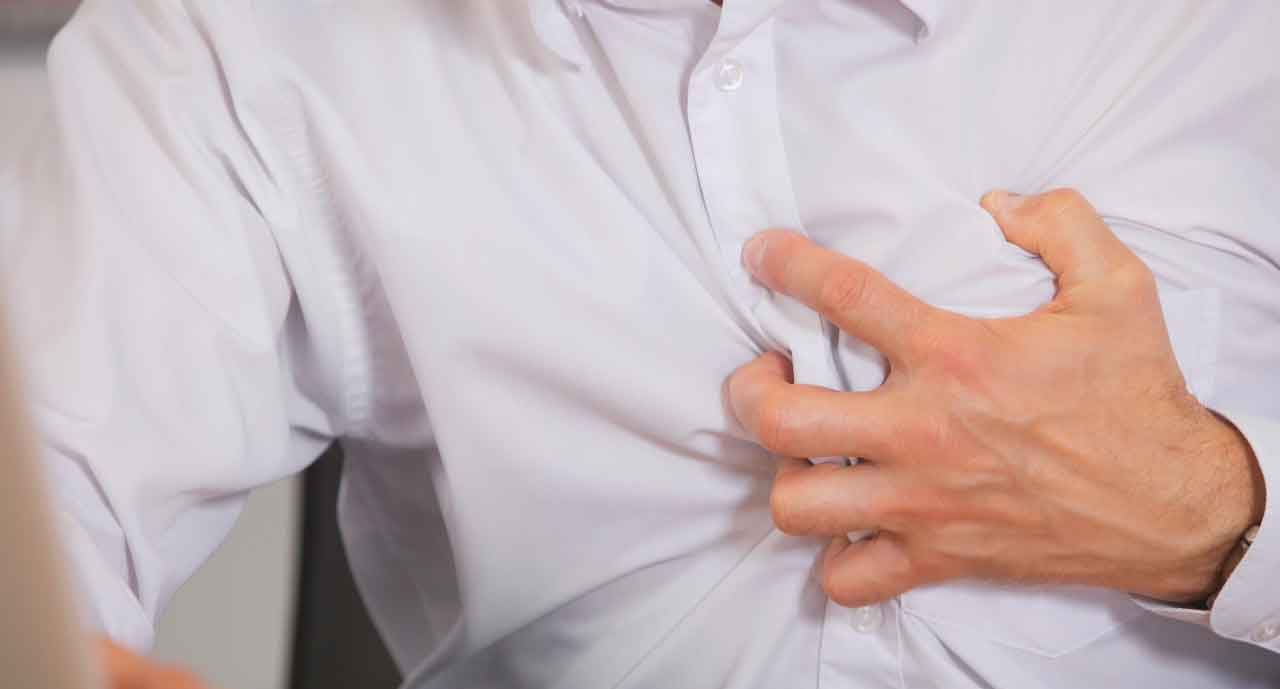Signs of a Heart Attack in Men and Women

Some symptoms are easy to misread or ignore, especially in women. Here's what you should know about signs of a heart attack in men and signs of a heart attack in women.
We all think we know the classic signs of heart attack: a crushing or squeezing chest pain, usually under the breast bone. But that’s only typical in men. Most female heart attack patients don’t have chest pain and instead feel extremely weak suddenly, and suspect flu.
Nearly 60 percent of women who die of heart attacks had no history of chest pain. They feel upper back pressure or jaw pain instead. In part because they are less likely than men to suspect heart trouble, more women die of heart disease each year than men.
Also in most heart attack patients, male and female, other warning signs appeared days or even weeks beforehand, notes John Elefteriades, MD, director of the Aortic Institute at Yale University and Yale-New Haven Hospital and author of “Your Heart: An Owner’s Guide.” The trouble is that these symptoms—which include fatigue, indigestion, and dizziness — usually don’t indicate anything serious. When might they be a red flag that requires a trip to the ER?
YOU MIGHT ALSO LIKE: The Frustrating Problem of Heart Disease in Women
What are the signs of a heart attack in men? What about the signs of a heart attack in women?
Fatigue. Elefteriades argues that in both men and women, whenever your usual activities leave you especially tired and you can’t attribute the feeling to lack of sleep or an illness, you might be on alert for heart trouble.
Flu-like symptoms. Fatigue accompanied by weakness and lightheadness are another sign, especially in post-menopausal women. The key is whether you also have a fever, a sign of flu.
Nausea and indigestion. People throw up before heart attacks. Of course, you could feel nauseated because you have a stomach upset such as food poisoning or a stomach flu. But if indigestion comes and goes, isn’t connected to a particular meal, and doesn’t improve within a day or so despite taking antacids, you have reason for concern. See a doctor. Go fast if you are also sweating or look gray.
Sexual problems in men. Again, it’s not uncommon for men to have trouble achieving or keeping an erection. But poor blood flow to the penis can be a sign of blockages elsewhere. Always talk to your doctor just to be sure.
Shortness of breath. Feeling winded makes sense if you’ve pushed yourself especially hard when exercising. If it occurs when you’re not active — sitting, lying down, or puttering around the house — and lasts or gets stronger, grab your cell phone and dial 911. Unexplained shortness of breath can be the immediate precursor of a heart attack, and sometimes the only symptom.
Unusual sweating. Some people sweat more than others normally. If you are sweating more than your own norm, this may be a sign that your heart is having to work harder to overcome blockages. Clammy skin and waking up with cold sweats is a clue. Women who get hot flashes are typically hot, not cold.
Remember this: Women, especially after menopause, are more likely than men to have less specific symptoms. Also, be more concerned if you see sweating. It’s a common mistake to fear that you’ll be embarrassed in the ER if you turn out to have no serious problems — but in fact, the EMT team will be relieved. They’ll be happy for you, not angry.
Updated:
March 03, 2020
Reviewed By:
Janet O’Dell, RN